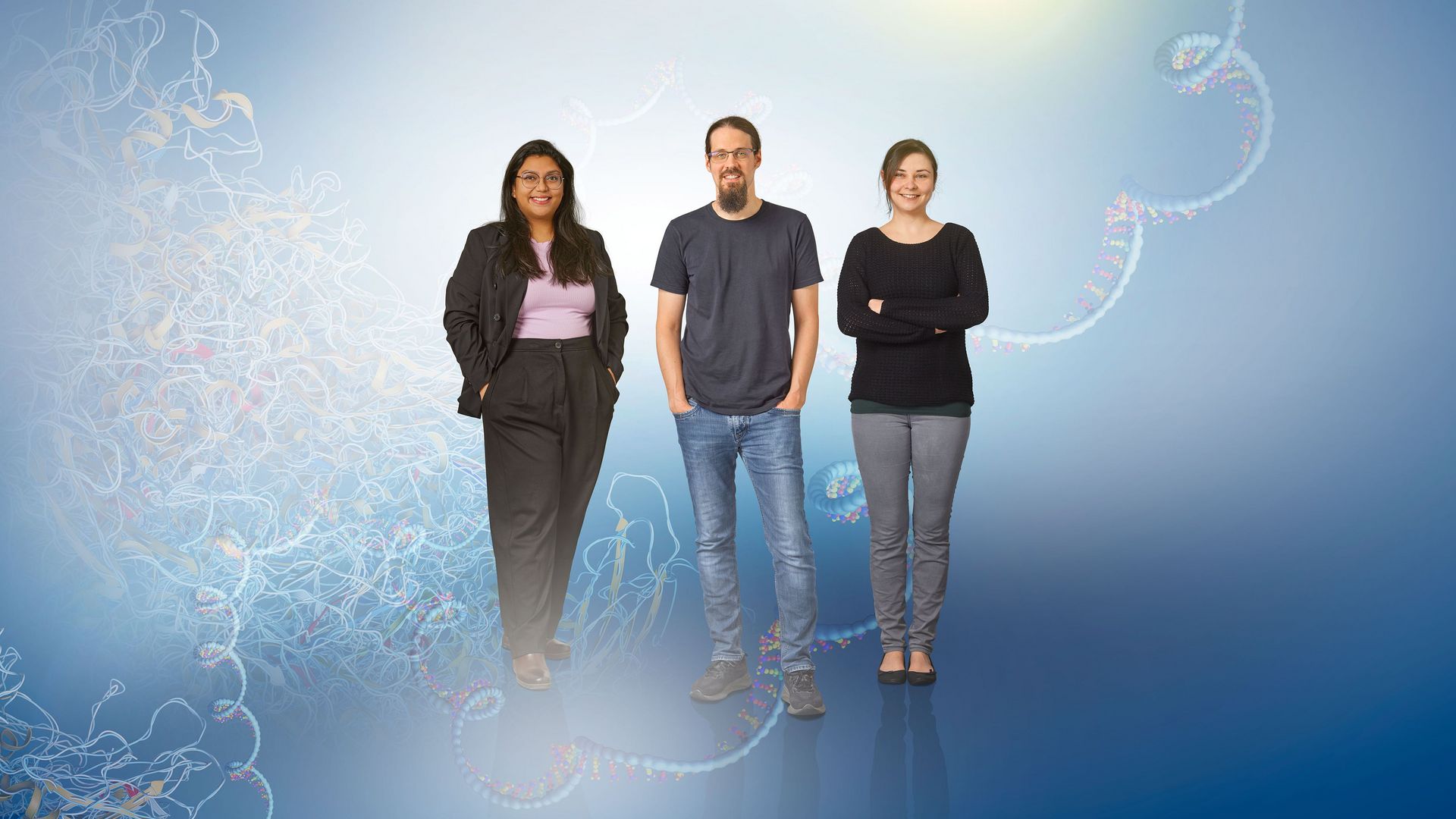
Jun Prof Jens Hör
Molecular Principles of RNA Phages
Our research and approach
The research group led by Jens Hör investigates the dynamics of infection, host takeover, and anti-phage defense during the interaction between RNA phages and their hosts. They seek to understand the molecular principles underlying these processes to develop new and improved antibacterial strategies such as phage therapy.
The emerging crisis of antibiotic-resistant bacteria demands the development of novel treatment options for bacterial infections. Phages as the natural predators of bacteria can be exploited to support this process. However, for this, it is crucial to have suitable phages at hand and understand how they function. RNA phages, unlike DNA phages, are heavily understudied. Their characterization will help to unfold the full potential of phages in the design of novel antimicrobial therapies and offers the opportunity to yield new molecular tools and technologies.
Jens Hör’s group works on the molecular principles of RNA phages in the context of phage-host interactions. They seek to understand how RNA phages take over their hosts during infection and how the hosts defend themselves against the invading phages. In addition, they isolate and functionally characterize new RNA phages.
The group employs classical biochemistry and molecular biology methods as well as state-of-the-art high-throughput methods to analyze the unique lifestyle of RNA phages in concert with their host. Their overall goal is to advance our understanding of RNA phages and how they can be exploited to develop novel antibacterial strategies.
Team members

Jun Prof Jens Hör
Group Leader

Manuel Velasco Gomariz
Postdoc

Aatreyi Roy
PhD Student

Arina Drobysheva
PhD Student

Sarah Reichardt
Technical Assistant
Research projects
Graphical Abstract
Catch a Virus by Its Tail
Phages, viruses that attack bacteria, have a head and a tail. The head contains the phage’s genetic material and the tail is used to identify a potential host, that is, a bacterial cell into which it can inject this material. Once the injection is complete, the phage hijacks the bacterium’s cellular machinery and forces it to produce new copies of itself, which ultimately burst the cell and infect other bacteria in the colony. In the journal Nature, Jens Hör and colleagues from the Weizmann Institute of Science describe a bacterial immune system that thwarts the phages’ plot by attaching a small protein to their tails. The components of this new immune system are similar in structure to a human immunity mechanism, and they might help reveal how this mechanism works and how our own immune system has evolved.
Publications
2025
2024
Bacteria conjugate ubiquitin-like proteins to interfere with phage assembly
Hör J, Wolf SG, Sorek R (2024)
Nature 631 (8022): 850-856
2023
Discovery of phage determinants that confer sensitivity to bacterial immune systems
Stokar-Avihail A, Fedorenko T, Hör J, Garb J, Leavitt A, Millman A, Shulman G, Wojtania N, Melamed S, Amitai G, Sorek R (2023)
Cell 186 (9): 1863-1876.e16
2022
INRI-seq enables global cell-free analysis of translation initiation and off-target effects of antisense inhibitors
Hör J, Jung J, Ðurica-Mitic S, Barquist L, Vogel J (2022)
Nucleic Acids Research 50 (22): e128
An overview of gene regulation in bacteria by small RNAs derived from mRNA 3' ends
Ponath F, Hör J, Vogel J (2022)
FEMS Microbiology Reviews 46 (5): fuac017
An expanded arsenal of immune systems that protect bacteria from phages
Millman A, Melamed S, Leavitt A, Doron S, Bernheim A, Hör J, Garb J, Bechon N, Brandis A, Lopatina A, …, Amitai G, Sorek R (2022)
Cell Host & Microbe 30 (11): 1556-1569.e5
Global profiling of the RNA and protein complexes of Escherichia coli by size exclusion chromatography followed by RNA sequencing and mass spectrometry (SEC-seq)
Chihara K, Gerovac M, Hör J, Vogel J (2022)
RNA 29 (1): 123-39
2021
Analysis of the RNA and Protein Complexome by Grad-seq
Hör J, Vogel J (2021)
Methods in Molecular Biology 2300: 183-201
Grad-seq identifies KhpB as a global RNA-binding protein in Clostridioides difficile that regulates toxin production
Lamm-Schmidt V, Fuchs M, Sulzer J, Gerovac M, Hör J, Dersch P, Vogel J, Faber F (2021)
microLife 2: uqab004
2020
Grad-seq shines light on unrecognized RNA and protein complexes in the model bacterium Escherichia coli
Hör J, Di Giorgio S, Gerovac M, Venturini E, Förstner KU, Vogel J (2020)
Nucleic Acids Research 48 (16): 9301-9319
Grad-seq in a Gram-positive bacterium reveals exonucleolytic sRNA activation in competence control
Hör J, Garriss G, Di Giorgio S, Hack LM, Vanselow JT, Förstner KU, Schlosser A, Henriques-Normark B, Vogel J (2020)
The EMBO Journal 39 (9): e103852
Trans-Acting Small RNAs and Their Effects on Gene Expression in Escherichia coli and Salmonella enterica
Hör J, Matera G, Vogel J, Gottesman S, Storz G (2020)
EcoSal Plus 9 (1): 10.1128/ecosalplus.ESP-0030-2019
2018
Bacterial RNA Biology on a Genome Scale
Hör J, Gorski SA, Vogel J (2018)
Molecular Cell 70 (5): 785-799
2017
A Small Number of Low-abundance Bacteria Dominate Plant Species-specific Responses during Rhizosphere Colonization
Dawson W, Hör J, Egert M, van Kleunen M, Pester M (2017)
Frontiers in Microbiology 8: 975
Discovery of new RNA classes and global RNA-binding proteins
Smirnov A, Schneider C, Hör J, Vogel J (2017)
Current Opinion in Microbiology 39: 152-160


